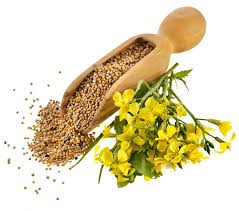Supreme Court Questions Govt on GM Crops
On January 11, the Supreme Court asked why the government’s Genetic Engineering Appraisal Committee (GEAC) did not consider expert reports on genetically modified (GM) crops. The GEAC approves the release of GM organisms.
SC Hearing Pleas Against GMOs
The court is hearing pleas for a ban on releasing GM organisms until more research is done. The petitions want a transparent public process involving independent expert agencies.
Govt Seeks To Allow GM Mustard
The government now wants to withdraw its earlier promise not to push GM mustard cultivation. In November 2022, the court had ordered status quo on a GEAC nod for commercial GM mustard over risk concerns.
What is GM Mustard Hybrid DMH-11?
DMH-11 is a genetically modified mustard hybrid developed at Delhi University. It combines Indian and East European mustard types using lab techniques. This helps make a more productive hybrid for higher yields.
GM Method Used for Hybridisation
Normal mustard breeding is tricky but GM methods enabled hybridization here. Scientists added genes from soil bacteria to parent plant lines – one for sterile pollen, one to restore fertility later. This allowed efficient cross-breeding.
Higher Yields Claimed
DMH-11 showed 28% higher yields than a popular Indian variety in contained trials. The GEAC cleared it in 2022 for commercial cultivation after seed production. It also allowed new hybrids using the GM parental lines.
Addressing Opposition Concerns
There were concerns over DMH-11 like: risk to bees. But expert reports found little adverse effect likely. The GEAC still asked for more studies on bees when DMH-11 is released.
Motivation to Cut Edible Oil Imports
India depends heavily on edible oil imports. Nod to home-grown higher yielding GM mustard could reduce foreign exchange spending running into billions of dollars annually.
Month: Current Affairs - January, 2024
Category: Agriculture Current Affairs • Economy & Banking Current Affairs








